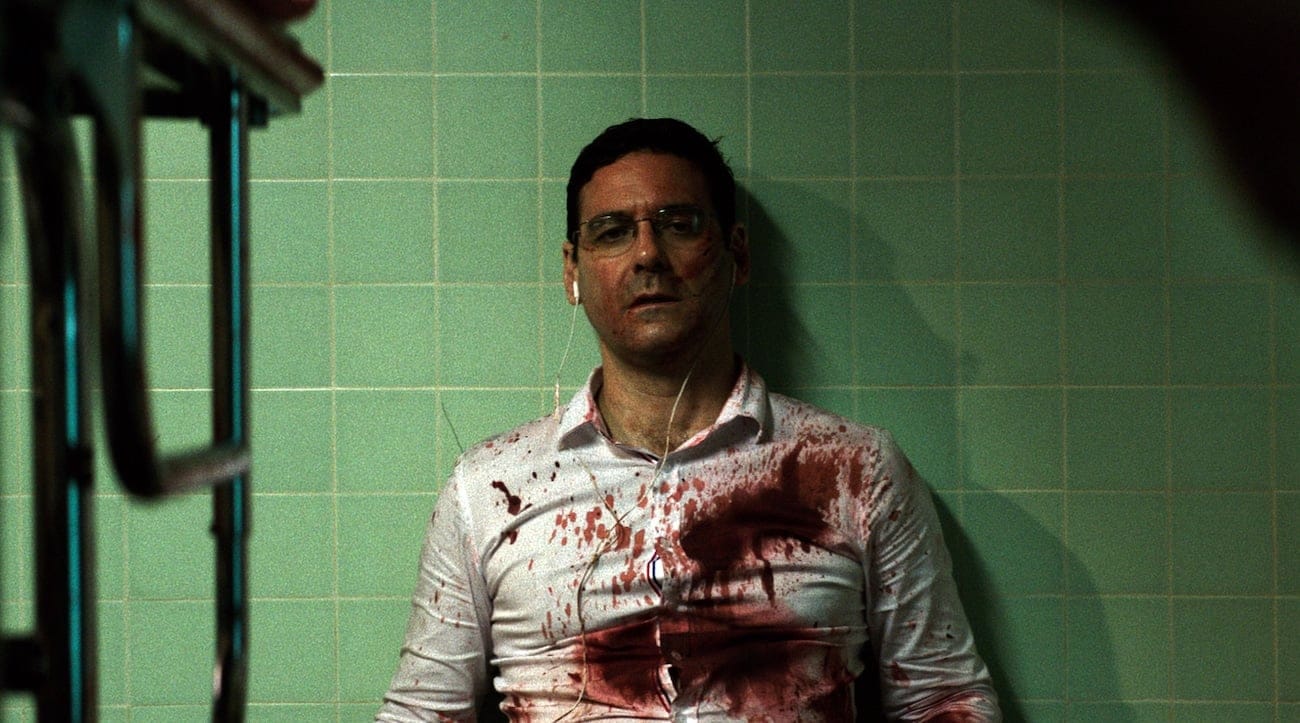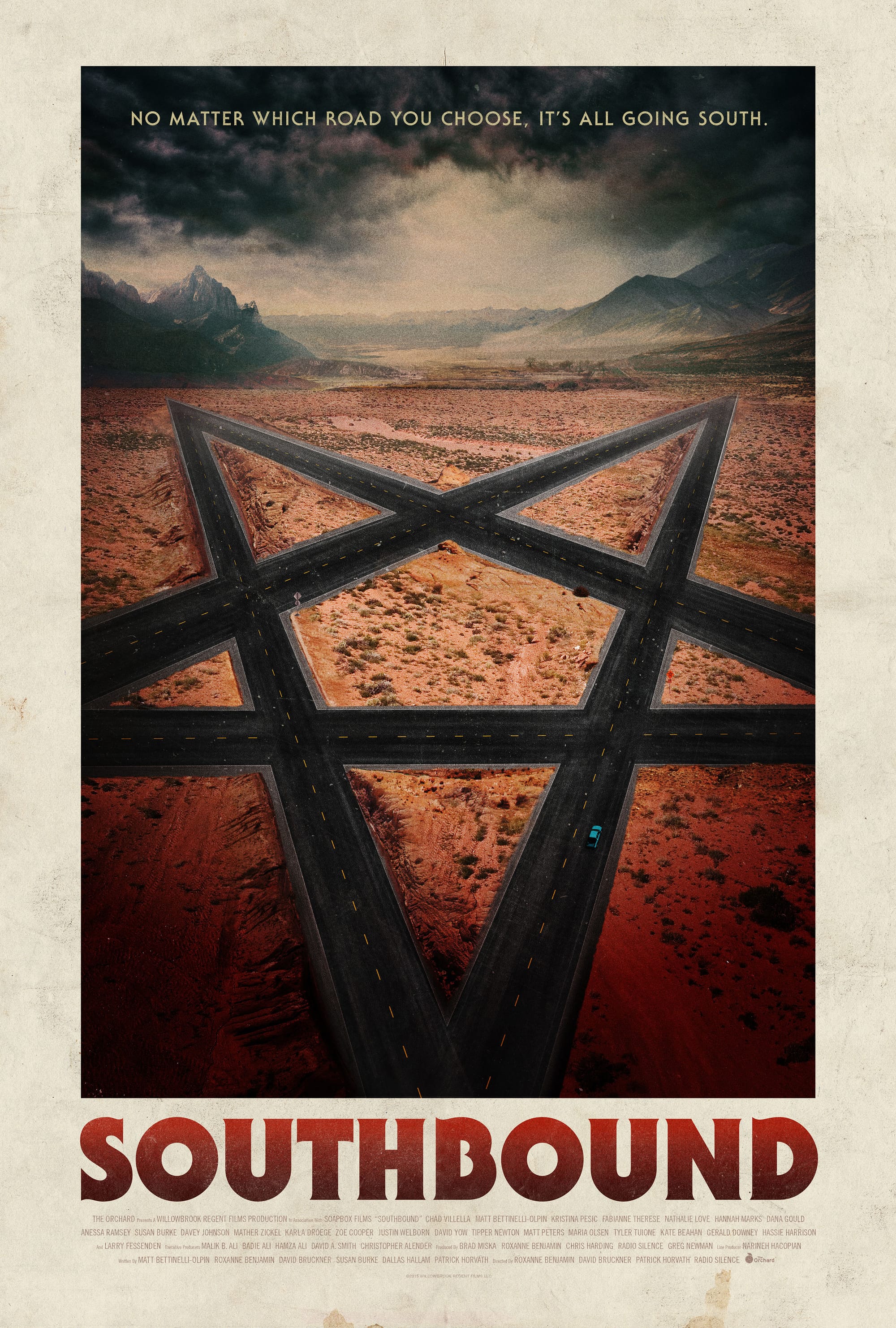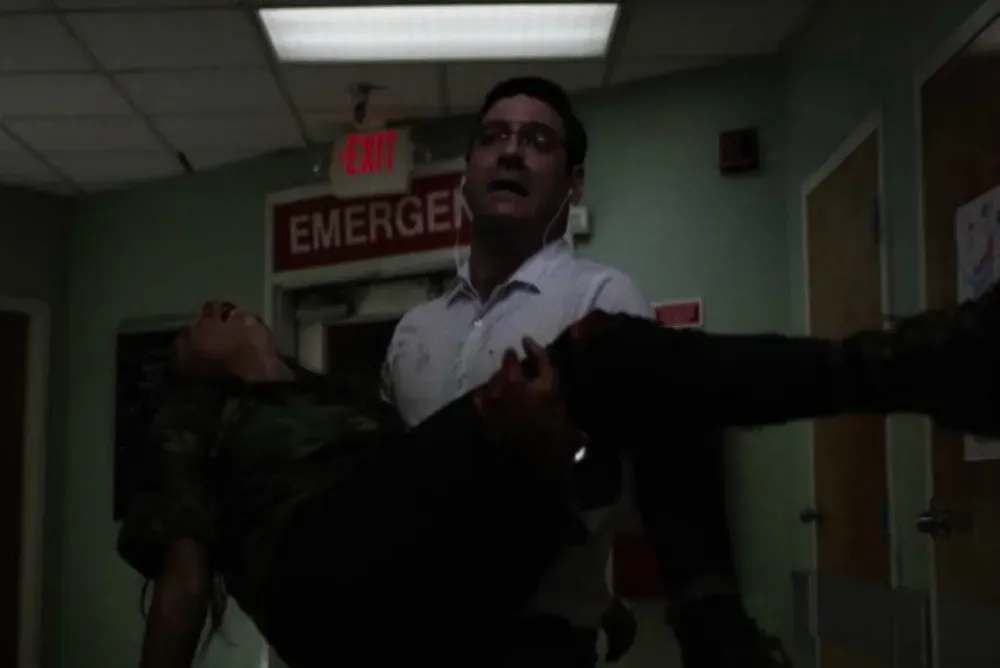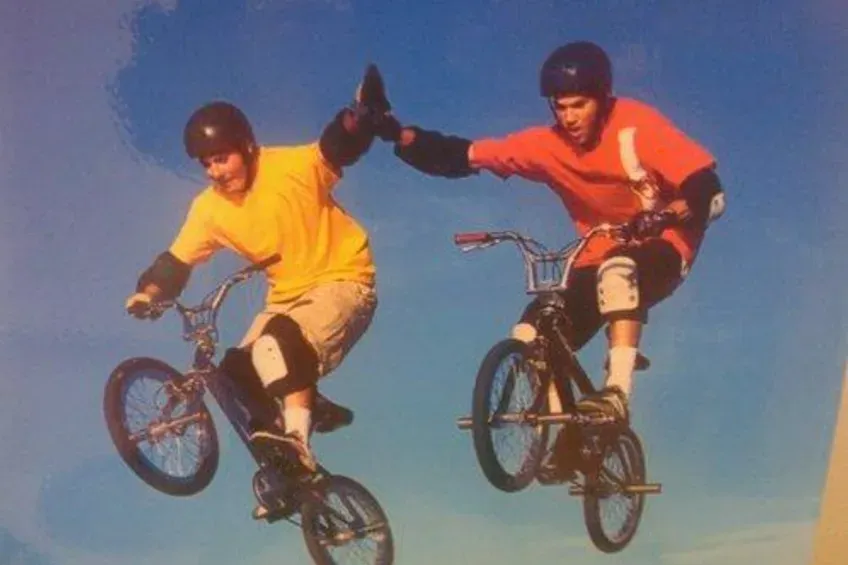My Canon: "The Accident" by David Bruckner, from Southbound
Sometimes you're with an artist for life. Whatever else he does, whatever missteps he may make along the way, I will take the time to watch what David Bruckner directs. His last two features were 2020's The Night House, which I liked well enough and the Hellraiser reboot, which I remember being pretty good but haven't felt any urge to revisit. His hit rate is fine but not so bulletproof I'd follow him anywhere based on his features alone. It's just that Bruckner also made "The Accident," the best segment of the anthology horror film Southbound. "The Accident" is probably also the best horror film of its decade.

Southbound was released in 2015 and is made up of five shorts that transition seamlessly into each other. They take place around a lost highway, which ends up being a great unifier. Most shots are of empty spaces, most segments feature less than five characters and each short feels like its own thing. One's demonic, one has aliens, one has David Yow from the Jesus Lizard. The crew has overlap with the first VHS film, namely Brucker, Roxanne Benjamin and the Radio Silence collective, plus Patrick Horvath, who's currently making the excellent horror comic Beneath The Trees Where Nobody Sees. I haven't kept up with the VHS movies, but I'm still waiting for Southbound 2.
Benjamin's segment ends with its central character running onto a road for help and immediately getting hit by Lucas, a driver played by the great Mather Zickel (you may recognize him from a bunch of David Wain projects or Newsreaders; in The Ten, he plays the newscaster who gets cuckolded by a ventriloquist's dummy). That's the beginning of "The Accident"– a woman is hit by a car and the guy who hits her, who is initially on the phone with his wife, dials 911.

I can't describe what happens next without doing the whole thing a deep disservice. Here's a YouTube rip of the sequence.
When people pick apart horror and what makes things scary, it's often a very boring conversation and it's often focused on how much the author/director/whoever shows the audience. People love defining horror in the same way they love defining comedy or anything ephemeral that doesn't need rules retroactively applied to its structure, and people will say "the scariest thing isn't what you see, it's what you think is there," like The Texas Chain Saw Massacre isn't at its most terrifying when a weird guy in a creepy mask is chasing after his victims with a chainsaw. There's a lot of great horror that plays on subtlety, but even the best vibe-based horror will eventually get explicit. The Thing from The Thing turns a person's chest into a giant, arm-gnashing mouth, for god's sake.
My problem with so many subtle attempts at horror is they exist purely as vibes. All of Osgood Perkins' early work is like this. The little Lovecraft I've read is like this. The terror is that the character we're watching/reading about is experiencing terror and the writer's imagination stops there. Your imagination is supposed to pick up the slack. What's behind that door? horror (the kind that stops at asking "What's behind that door?" at least) usually doesn't do anything for me because so many writers don't really seem to care about the answer to that question. It's lazy. I'm happy for my imagination to be an active participant in your work, but I need you to meet me halfway. I need you to not write the first half of "The Yellow Wallpaper" and stop short of delivering as well as Charlotte Perkins Gilman did. I can't survive on build-up alone.
This isn't purely about length or scope. I still think "The Lottery" is a perfect short story even though Shirley Jackson ends it as soon as the rocks start flying. And in that case, at least, it works because Jackson is a brilliant writer who's already filled every line with dread. She delivers the horror and tells a full story, even if that story is a small slice of a much larger world that's only hinted at in passing. Lovecraft's "At The Mountains of Madness," a much longer, more expansive short story, leaves too much to the inexplicable for my tastes. Major plot points are centered around things the writer was only willing or able to imply. People who love Lovecraft have made things like "Mountains" that I love, i.e. Junji Ito's "The Enigma of Amigara Fault," the aforementioned The Thing or the first Alien movie, but those stories tend to put more focus on identifiable human behavior than Lovecraft could.
That's why "The Accident" works so beautifully for me. There are no answers, not even hints at what could be going on, but Luther's emotional reaction is about what yours or mine would be. It's fun to think about who the voices on the phone are, but their existence is so incredible that any definitive answer would have to involve the supernatural in a way that would probably dull their existence.
It's one man, scared out of his mind in abandoned areas, talking to awesomely powered beings that want to fuck with him. If they have a deeper motivation, the short doesn't pretend to care.

It's also, in a very unpleasant way, soothing for the Luther character. As terrified as he is, he hit and wounded a woman with his car. As long as that's already happened, as long as he's done something unforgivable, isn't it some kind of balm to have somebody/thing else take over? By the end of the short, the woman is dead but Luther has gotten away with everything and, presumably, nothing will ever be tied back to him.
The Twilight Zone is about people whose lives are, often through no fault of their own, shoved sideways into Crazy Land. They just suddenly have to cope with an alien race that'll eat humanity or their exact doppelganger running around a bus depot or the discovery that x is a portal to y. Episodes of The Twilight Zone often as "The Lottery" does: The horror has mostly revealed itself and now the characters will have to cope with it off-screen.
That isn't "The Accident." It's possibly the case that the voices arranged for Luther's accident but it's definitely the case they get him away from any repercussions for it. That doesn't mean the voices are good. It means their motivations are unreadable. That's the kind of cosmic horror I can go crazy for.
